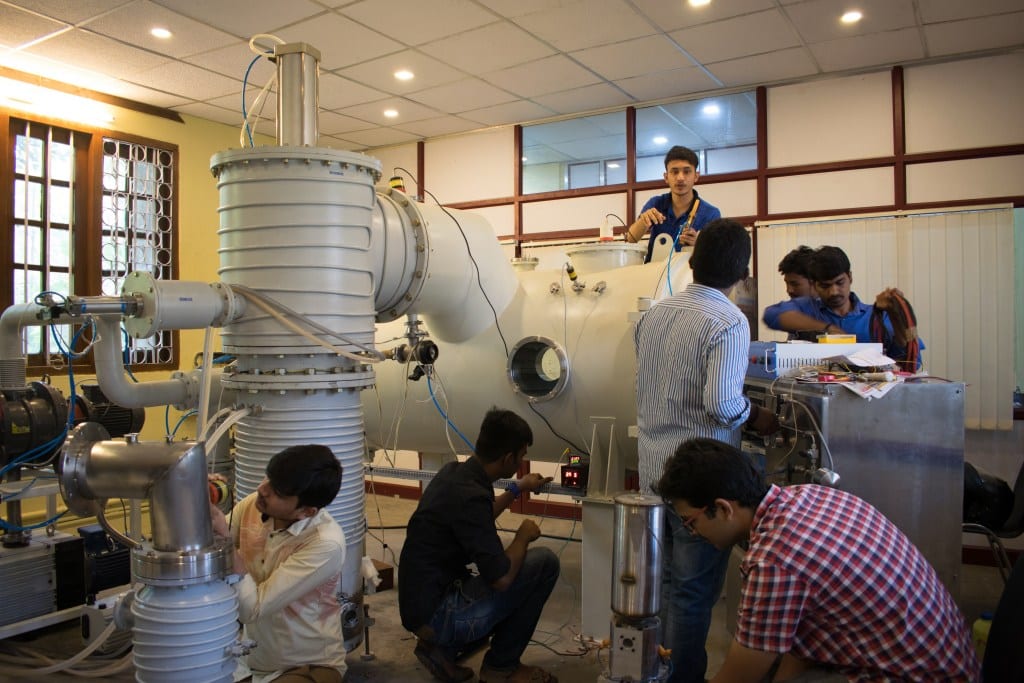When humans make Space their habitat in the not-so-distant future, a Bengaluru company would have been part of conquering the final frontier. A new Space company incubated at Indian Institute of Science, Bellatrix Aerospace is developing advanced in-Space propulsion systems that can bring down the cost of access to Space, and aims to be the first private company to launch a rocket from Indian soil.

Rohan M Ganapathy, Director & CEO, Bellatrix Aerospace
“I believe that Space is a great enabler that transforms our lives back on Earth. In a few years, we will see Planets being colonized and Asteroids being mined. Space travel will become as common and as affordable as air travel”
– Rohan M Ganapathy, Director & CEO, Bellatrix Aerospace
Bellatrix Aerospace is led by a team of engineers with Rohan M Ganapathy (CEO), Yashas Karanam (COO) and Narendra Narayanan (MD) for whom creating technologies through internal R&D is an exciting challenge. This is due to the fact that propulsion technology is a restricted technology; technical information is not easily available and is constricted by export control/tech transfer into India.
Talking about the unique features of Bellatrix’s work, Ganapathy explains, “Just as cars need engines to move, satellites need propulsion systems for orbit raising and station-keeping (maintaining proper orientation) applications. Most of the current satellites today use chemical propulsion systems. The major disadvantage with chemical propulsion is that they require a large mass of propellant.”
Electric propulsion is an emerging technology that is quickly replacing chemical propulsion technology. Using an electric propulsion system, a satellite can carry 3 times more payload compared to a satellite that uses chemical propulsion. This results in reduced mission costs and increased Return on Investment (RoI) per satellite. Bellatrix aims to be a global leader in the field of propulsion by offering advanced technology at competitive prices.
“Our proprietary electric thrusters can also accommodate water as propellant. This is a scalable technology and offers a high thrust-to-power ratio compared to competitors in this segment. Bellatrix is working towards becoming a provider of combined solutions for all propulsion requirements and is currently developing different varieties of chemical and electric propulsion systems for satellites ranging from nanosatellites to heavy satellites.”

Bengaluru is also the hub for Space companies in India. With ISRO, HAL and BEL headquartered in Bengaluru, a complete ecosystem for aerospace manufacturing has come up in the city. The Public Private Partnership model is the key to building a better world with affordable access to Space based services.
Given the high cost of sending satellites to Space, the proposition of reducing the satellite mass even by a small amount is very attractive. Traditional satellites employ chemical propulsion systems which considerably reduce the on-board space available for payload. This makes the satellites very inefficient and expensive to launch. Electric propulsion systems negate this as they require much less fuel in comparison with traditional systems. This results in a dramatic downsizing of the propulsion system allowing for a satellite to carry much greater payload and enhance the orbital endurance. This allows for greater profitability and a competitive advantage among satellite operators adopting electric propulsion systems.
Bellatrix is aiming to also diversify into ground to Space propulsion (rocket propulsion) after getting a good foothold in the in-Space propulsion area. It is working on newer ways of making access to Space more affordable through ‘Chetak’, a reusable micro launch vehicle that can carry a 200 kg payload to Low Earth Orbit. When this happens, Bellatrix would be the first private company to launch a rocket from Indian soil.
The highs for Bellatrix have been getting a developmental contract from ISRO, receiving the TDB National Award 2017 from the President of India for development of technology with potential for commercialization. Ganapathy was also featured on Forbes India and Forbes Asia’s ‘30 under 30’ list for the year 2018.
Bengaluru is also the hub for Space companies in India. With ISRO, HAL and BEL headquartered in Bengaluru, a complete ecosystem for aerospace manufacturing has come up in the city. The Public Private Partnership model is the key to building a better world with affordable access to Space-based services.















